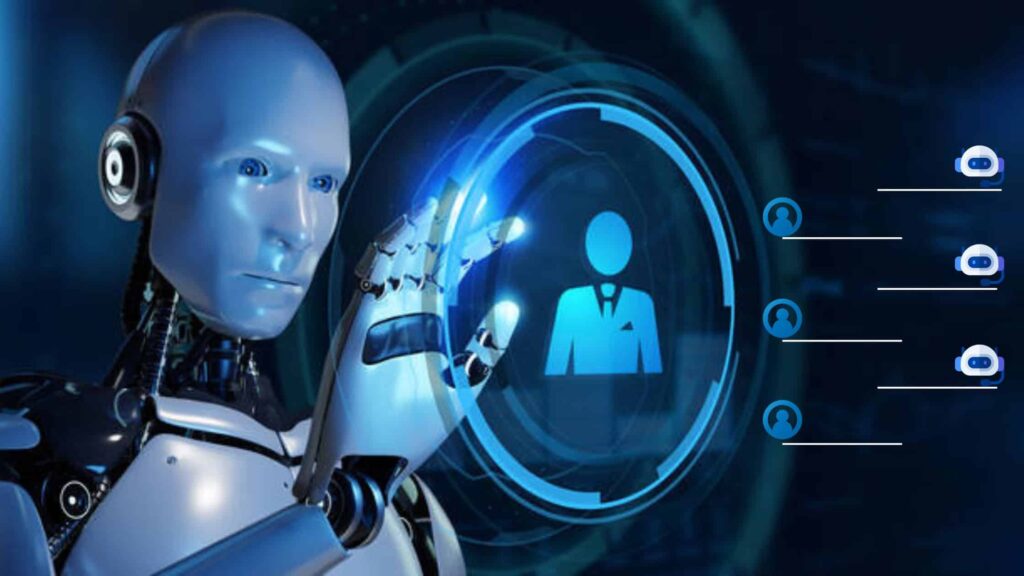The landscape of job interviews is evolving rapidly, with the integration of artificial intelligence (AI) chatbots as interviewers gaining prominence. These AI-powered interviewers promise efficiency, consistency, and scalability in the hiring process. However, their rise also raises important questions about fairness, bias, and the human touch in evaluating candidates. This article explores the emergence of AI chatbots as job interviewers, their advantages, challenges, and the critical need to strike a balance between efficiency and equity in the hiring process.
Table Of Content:
- The Evolution of Job Interviews
- The Rise of AI Chatbots in Job Interviews
- Challenges and Concerns
- Balancing Efficiency and Equity
- The Future of AI Chatbots in Job Interviews
- Conclusion
The Evolution of Job Interviews
Job interviews have long been a cornerstone of the hiring process. Traditionally, these interviews were conducted by human recruiters or hiring managers who assessed candidates based on their qualifications, experience, and interpersonal skills. However, as technology has advanced, so too has the way interviews are conducted.
The advent of online job applications and remote work has led to an increased demand for streamlined and efficient hiring processes. This demand, coupled with the rapid advancements in AI and natural language processing (NLP), has given rise to AI chatbots as interviewers.
In the ever-evolving world of job interviews, Vati is at the forefront of innovation. From the traditional face-to-face meetings to the integration of cutting-edge AI chatbots, Vati has witnessed the remarkable evolution of this critical aspect of the hiring process. Join us to explore Vati’s career planning and assessment service and tools with the changing landscape of job interviews.
The Rise of AI Chatbots in Job Interviews

Job interviews have traditionally been conducted by human recruiters or hiring managers. However, several factors have contributed to the adoption of AI chatbots in the hiring process:
1. Efficiency: AI chatbots can conduct interviews 24/7, significantly reducing the time and effort required for initial candidate assessments. They can handle a large volume of interviews simultaneously, accelerating the hiring process.
2. Consistency: Unlike human interviewers, AI chatbots ask the same set of questions to every candidate, ensuring a consistent interview experience. This consistency helps in making fairer comparisons between candidates.
3. Scalability: Organizations with high recruitment needs can benefit from the scalability of AI chatbots. They can efficiently manage a large pool of applicants without overburdening human resources.
4. Data-Driven Insights: AI chatbots can analyze candidate responses and provide data-driven insights to hiring teams, helping them make more informed decisions about which candidates to advance in the process.
5. Reduced Bias: When designed and trained correctly, AI chatbots can be programmed to minimize bias in the interview process, potentially leading to fairer evaluations of candidates.
Here is a article exploring seven groundbreaking AI driven job search ways in which AI is transforming the job search landscape, helping individuals find their next career opportunity with greater efficiency and precision.
Challenges and Concerns

While AI chatbots offer many advantages, they also come with significant challenges and concerns:
1. Bias and Fairness: AI chatbots can inherit biases present in their training data. This can result in discriminatory outcomes, disadvantaging certain groups of candidates.
2. Lack of Human Interaction: One of the criticisms of AI chatbots is the absence of human interaction, which can be crucial in assessing soft skills and cultural fit.
3. Limited Contextual Understanding: AI chatbots may struggle to grasp the nuances of a candidate’s responses, especially when it comes to complex or unstructured questions.
4. Candidate Experience: Some candidates may find interactions with AI chatbots impersonal and off-putting, leading to a negative perception of the hiring process.
5. Privacy Concerns: Collecting and analyzing data from candidate interviews raises privacy concerns. Organizations must ensure data protection and transparency in their processes.
Balancing Efficiency and Equity

To harness the benefits of AI chatbots in job interviews while mitigating their challenges, organizations must focus on striking a balance between efficiency and equity:
1. Diverse and Unbiased Training Data: To reduce bias, AI chatbots should be trained on diverse and unbiased datasets that reflect a wide range of backgrounds and experiences.
2. Human Oversight: Incorporate human oversight into the interview process. Human recruiters can step in when necessary to assess soft skills, cultural fit, and provide a personal touch.
3. Transparency: Candidates should be informed when they are interacting with an AI chatbot and understand the role it plays in the hiring process.
4. Continuous Improvement: Regularly assess and refine AI chatbot interview scripts and algorithms to ensure fairness and effectiveness.
5. Feedback Mechanisms: Provide candidates with the opportunity to provide feedback on their interview experience, allowing organizations to make necessary improvements.
6. Hybrid Approaches: Consider hybrid approaches that combine AI chatbot interviews with human interviews to benefit from efficiency and human judgment.
7. Legal and Ethical Compliance: Ensure that AI chatbot interview processes comply with relevant laws and ethical standards, particularly concerning data privacy and discrimination.
The Future of AI Chatbots in Job Interviews
As technology continues to advance, AI chatbots are likely to play an even more significant role in job interviews. Their capabilities may expand to include more sophisticated sentiment analysis, natural language understanding, and even virtual reality-based interviews. However, ensuring fairness, transparency, and candidate comfort will remain paramount.
Conclusion
AI chatbots are undeniably revolutionizing job interviews, offering efficiency, scalability, and data-driven insights. Yet, their rise also raises important questions about fairness, bias, and the human element in assessments. From traditional in-person meetings to the integration of AI chatbots, Vati, the trailblazer in career development, has been a keen observer of the dynamic evolution of job interviews. Striking the right balance between efficiency and equity is not just a technological challenge but a moral imperative. As organizations navigate this evolving landscape, they must prioritize fairness, transparency, and continuous improvement to create a hiring process that benefits both employers and candidates alike in the digital age.
FAQs
How do AI chatbots influence the workforce?
AI chatbots have a significant impact on the workforce by automating tasks, enhancing efficiency, improving customer service, and changing the dynamics of job roles.
How is AI used in the interview process?
AI is used in the interview process through AI chatbots that can conduct initial candidate assessments, ask standardized questions, and analyze candidate responses for data-driven insights.
How are chatbots revolutionizing the service sector?
Chatbots are revolutionizing the service sector by providing 24/7 customer support, automating routine inquiries, and delivering quick and consistent responses, ultimately improving customer satisfaction and reducing operational costs.
What does the future hold for job interviews with AI chatbots?
The future may bring more advanced AI capabilities, such as enhanced sentiment analysis and natural language understanding, while maintaining a focus on fairness and transparency.
How can candidates adapt to AI-powered job interviews?
Candidates can prepare for AI interviews by practicing with AI chatbots, emphasizing clear communication, and providing thoughtful responses.
Is there a place for traditional, human-led interviews alongside AI chatbots?
Yes, hybrid approaches that combine AI chatbot interviews with human assessments can provide a well-rounded evaluation of candidates.





